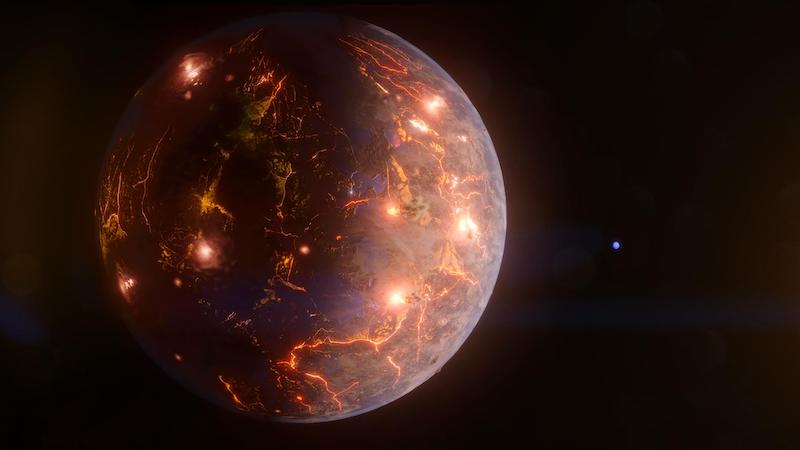
On Monday, July 22, 2024, EarthSky’s Deborah Byrd will speak LIVE with Jean-Luc Margot, a Belgian-born astronomer and UCLA professor. Margot and his team just published a new study, outlining the reason we need a new definition of “planet.” They will present their ideas to the IAU General Assembly – a global meeting of astronomers – beginning on August 6 in Cape Town, South Africa.
When Pluto was demoted from full planet status in 2006, it was because the International Astronomical Union’s definition of a planet had changed. The change created an uproar. But, since the mid-1990s, scientists have discovered more than 5,000 exoplanets, or worlds orbiting distant stars. Meanwhile, the IAU definition applies only to planets within our solar system. The newly proposed planet definition is less sun-centric.
The new definition specifies that “planets” may orbit one or more stars, brown dwarfs or stellar remnants.
It sets mass limits that its originators say should apply to planets everywhere.
But does it return Pluto to full planet status?
Jean-Luc Margot and team published a new study in The Planetary Science Journal this past week (July 17, 2024) outlining their reasons for the suggested change in the definition to “planet.” Find their study here: Quantitative Criteria for Defining Planets.

Bottom line: When the International Astronomical Union created a definition for “planet” in 2006, Pluto lost full planet status. Now astronomers are proposing a new definition of “planet.”
The post What IS a planet? LIVE with Jean-Luc Margot first appeared on EarthSky.
from EarthSky https://ift.tt/GxChmYj

On Monday, July 22, 2024, EarthSky’s Deborah Byrd will speak LIVE with Jean-Luc Margot, a Belgian-born astronomer and UCLA professor. Margot and his team just published a new study, outlining the reason we need a new definition of “planet.” They will present their ideas to the IAU General Assembly – a global meeting of astronomers – beginning on August 6 in Cape Town, South Africa.
When Pluto was demoted from full planet status in 2006, it was because the International Astronomical Union’s definition of a planet had changed. The change created an uproar. But, since the mid-1990s, scientists have discovered more than 5,000 exoplanets, or worlds orbiting distant stars. Meanwhile, the IAU definition applies only to planets within our solar system. The newly proposed planet definition is less sun-centric.
The new definition specifies that “planets” may orbit one or more stars, brown dwarfs or stellar remnants.
It sets mass limits that its originators say should apply to planets everywhere.
But does it return Pluto to full planet status?
Jean-Luc Margot and team published a new study in The Planetary Science Journal this past week (July 17, 2024) outlining their reasons for the suggested change in the definition to “planet.” Find their study here: Quantitative Criteria for Defining Planets.

Bottom line: When the International Astronomical Union created a definition for “planet” in 2006, Pluto lost full planet status. Now astronomers are proposing a new definition of “planet.”
The post What IS a planet? LIVE with Jean-Luc Margot first appeared on EarthSky.
from EarthSky https://ift.tt/GxChmYj

Aucun commentaire:
Enregistrer un commentaire